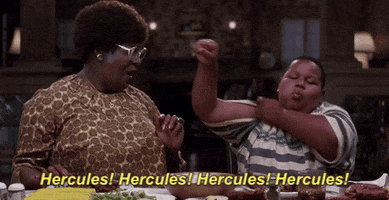I will attempt to provide an opinion as to not lean in any one particular direction (i.e. yes we are all biased vs. no we are not). From a neuroscientific perspective, our brains very much process information in various modalities (e.g., parallel processes, nodal distributions) that make it more plausible than not, that such information processing models outline that our brains constantly integrate information, store it, consolidate, re-consolidate, and retrieve information from various sensory inputs, and are computed in such a way that aligns with how that information is maximally processed and used (e.g., cyto-architectural specificity). All of this is to say, that it's also plausible that information is processed in such a way, then it is more implausible that we would be without the ability to retrieve information that varies in sensory modality as well as valence (e.g., strong vs. weak). So, this is where one could integrate the cognitive perspective, especially developmental and social cognition where such valences and sensory modalities will be very context specific, (e.g., being in combat, your wedding day, etc. and how those experiences were integrated from a sensory perspective). So, for example, it would make sense that it is likely that if you are to experience a traumatic situation such as combat, that one is experiencing that event via multiple modalities (e.g., touch, sound, sight, smell, etc.), and are further influenced by neurochemical processes that could enhance that information processing and storage. If one's brain has developed in an adverse environment (e.g., being poor, exposed to poverty, etc.), then their information processes will be relative and specific to them. If certain life experiences activate schemas or "nodes" throughout their life, then it is possible that any information learned from times past will be activated and used to apply to a given novel situation (e.g., top-down process).
Alternatively, we also have various decision-making and bias models proposed by Daniel Kahneman and Elizabeth Loftus that take these perspectives and shape them in a specific way. Loftus's perspectives on erroneous eye witness testimony could be evidence that from a social perspective, our past experiences could skew how we go about our lives and integrate information that is consistent with ones' beliefs and expectations, thus, depending on the nature of a crime that one is being asked to testify in, information gleaned by the eye witness my be skewed from the very beginning and could be mis-construed as being reliable due to how vivid and confident the witness expresses themselves.
So...perhaps bias exists? Maybe. Bias is more of a social and cognitive construct vs. that of a biological one as the available methods of measuring such phenomena are not very unitary to promote optimal construct validity. We can hook people up to do various psychophysical testing, use DTI, fMRI, etc. to look at associations between a behavior and supposed/hypothesized brain activity, but they are just that....hypothesized. That's the best modern science really has to offer at the moment. So, as long as there is a level of uncertainty associated with studying psychological constructs, there were always be questions that cannot be 100% answered, and therefore, are open for speculation.
My brain hurts after typing all of this...


